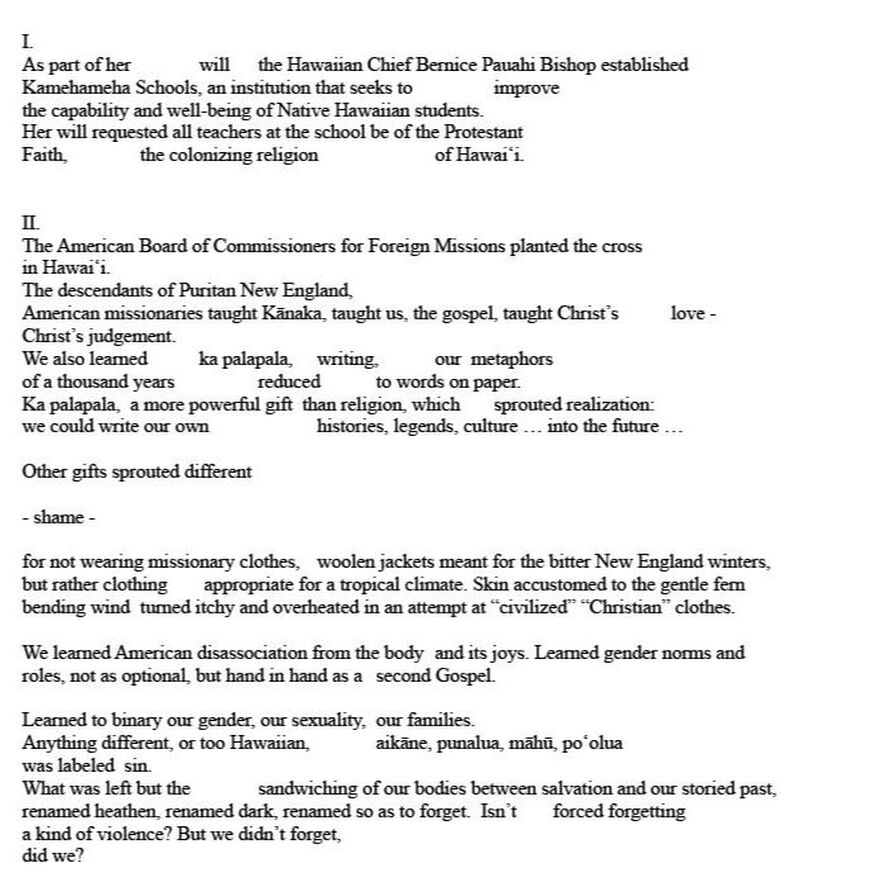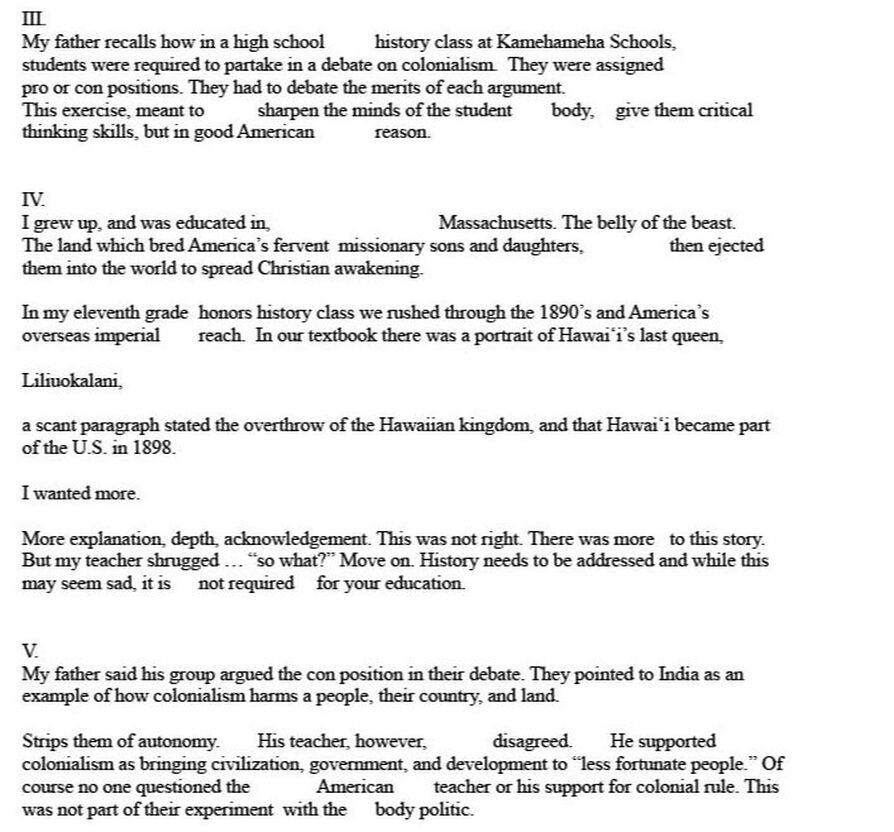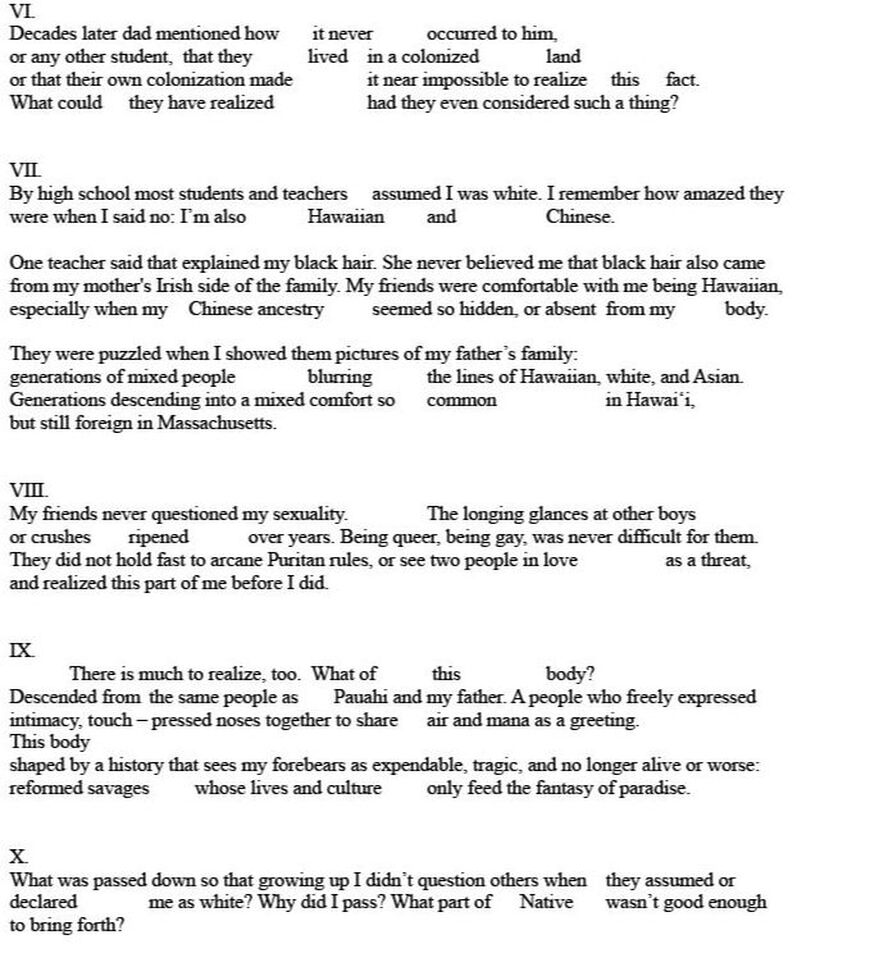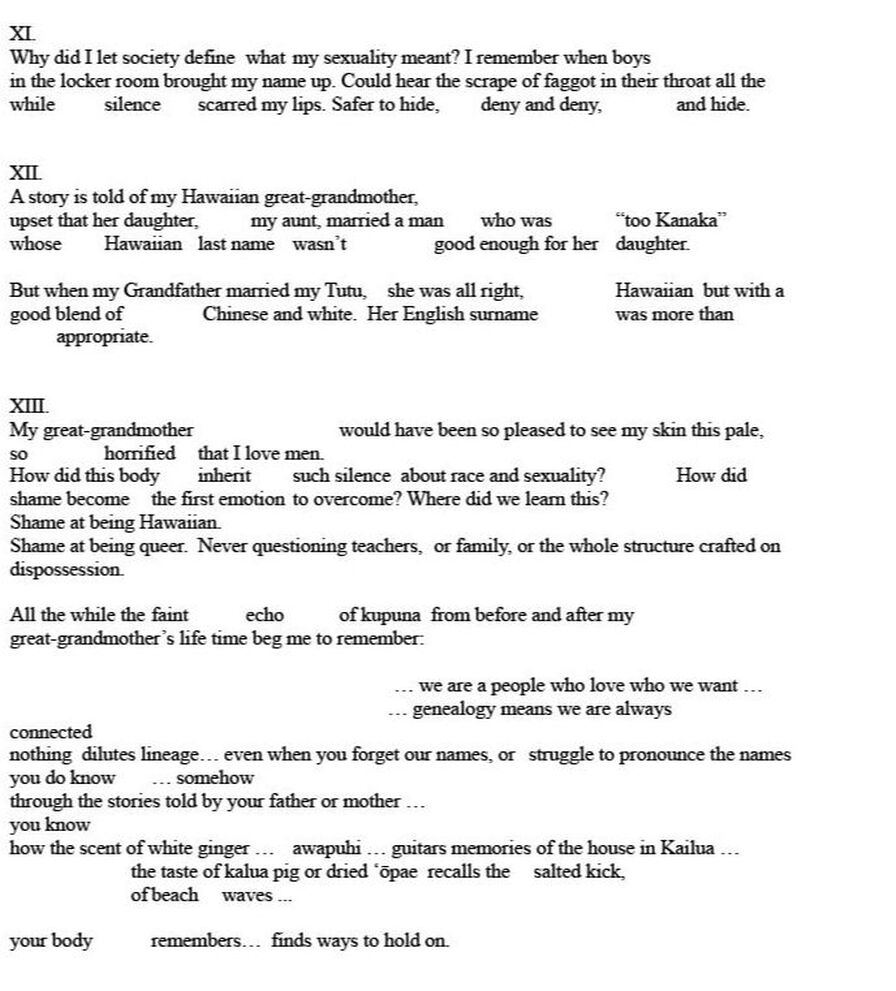D. Keali‘i MacKenzie
Legacies
D. Keali‘i MacKenzie is the author of the chapbook From Hunger to Prayer (Silver Needle Press). A queer poet of Kanaka ‘ōiwi, European, and Chinese descent; his work appears in or is forthcoming from Indigenous Pacific Islander Eco-Literatures, homology lit, Fahmidan Journal, Foglifter, and The Operating System Experimental Speculative Poetics. A past member of the Worcester Poetry Slam Team. He received an MA in Pacific Islands Studies, and an MLISc, from the University of Hawai‘i at Mānoa.



